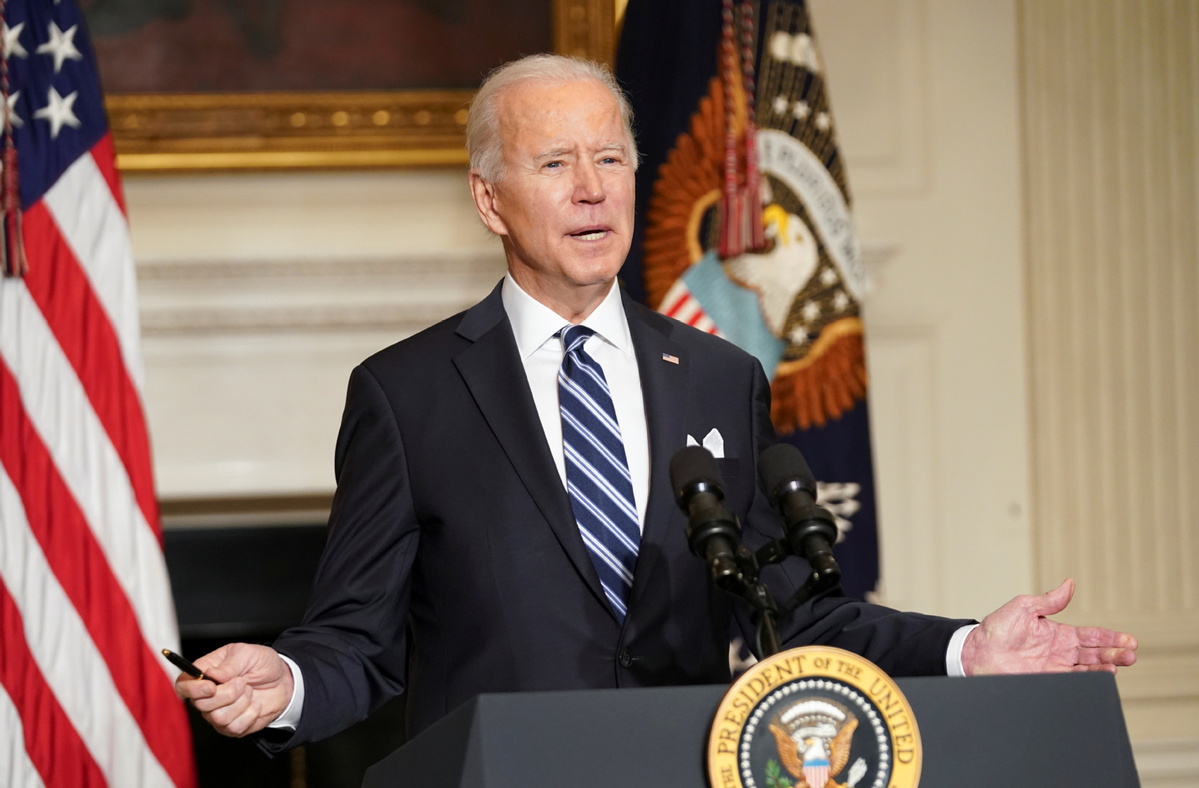US, China urged to work on climate as Biden signs orders






As the two of the largest emitters of greenhouse gas emissions in the globe, China and the US share common interests in protecting the climate, and the two nations need to work together, policy experts said while President Joe Biden signed executive orders on the issue Wednesday.
"Certainly there are issues of significant difference between China and the US, we all know that, but climate change is a place where some of those differences have to be put aside, because we need to work together," said Ken Alex, director of project climate at the UC Berkeley Center for Law, Energy and Environment.
John Kerry, Biden's special climate envoy, stressed Wednesday the urgency of working with China to tackle the climate crisis.
"With respect to China, obviously, we have serious differences with China. It's a very, very important issue, and I'm as mindful of that as anybody having served as secretary of state, and in the Senate … those issues will never be traded for anything that has to do with climate," Kerry said during a White House news briefing. "That's not going to happen. But climate is a critical, standalone issue."
Kerry's remarks followed an announcement from the new administration on plans to tackle climate change.
Biden, saying "it's time to act'', signed executive orders Wednesday that would cut oil, gas and coal emissions and double energy production from offshore wind turbines.
"In my view, we've already waited too long to deal with this climate crisis," Biden said before signing directives mandating the federal government to incorporate climate change considerations in everything from federal purchases to national security.
"We can't wait any longer," he said at the White House. "We see it with our own eyes. We feel it. We know it in our bones. And it's time to act."
Biden said the orders aim to "confront the existential threat of climate change" across the federal government while creating jobs and tackling racial inequity.
He said that fighting warming global temperatures and carbon pollution by improving infrastructure and transportation technology will add millions of jobs.
But energy companies and lawmakers from Western states immediately warned that the actions would result in job losses.
Wednesday's executive orders also establish new foreign policy goals, including specifying that climate change, for the first time, will be a core part of all US foreign policy and national security decisions.
The orders mark a reversal from former president Donald Trump, who sought to maximize oil, gas and coal output by removing regulations and easing environmental reviews.
Alex said the executive orders were good steps toward increasing the US' climate role and opens a window with China to work together on the issue.
He pointed out that California has long enjoyed a vital partnership with China.
The California-China Climate Institute (CCCI) at UC Berkeley, an initiative led by former governor Jerry Brown, is set up to promote opportunities for learning, coordination and cooperation around the issue of climate, wherever possible, Alex said.
"Governor Newsom has made it very clear he wants to continue that leadership. There are many opportunities. We are not na?ve; there are serious issues between the US and China, California is obviously a part of the US, but there are many opportunities as well," he said.
Dr An Feng, founder and president of the US-China Cleantech Center, said the two nations have been working closely on the climate and in clean tech.
During the Trump administration, when the Sino-US relationship deteriorated rapidly, California and China still continued their subnational exchanges on climate change collaboration, An said.
He remains optimistic about the prospects of collaboration and expects enterprises in the two nations to work together more, especially in the development of clean energy technologies.
Ethan Elkind, director of the climate program at UC Berkeley's Center for Law, Energy and Environment, said the executive actions are necessary sweeping measures.
"It's the product of a lot advance thought and deliberation by many climate nonprofits, clean tech businesses and academics who have been working on these issues for years and now finally have a chance to put these ideas into action after four years of climate inaction under Trump," he said.
He sees potential business collaboration opportunities on the climate.
"I think some of his measures promoting electric vehicles and a clean grid present opportunities for collaboration with China, as China is a major manufacturer of EV batteries as well as solar panels and also has its own carbon-neutrality goal by 2060," he said. "There should be opportunities for business collaboration to meet these goals, as well as sharing best practices on policies."





























